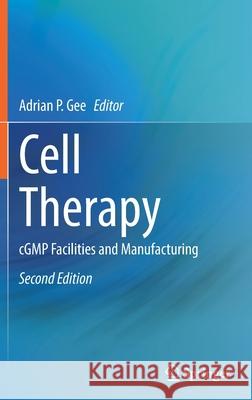Cell Therapy: Cgmp Facilities and Manufacturing » książka
topmenu
Cell Therapy: Cgmp Facilities and Manufacturing
ISBN-13: 9783030755355 / Angielski / Twarda / 2021 / 502 str.
Kategorie:
Kategorie BISAC:
Wydawca:
Springer
Język:
Angielski
ISBN-13:
9783030755355
Rok wydania:
2021
Wydanie:
2021
Ilość stron:
502
Waga:
1.14 kg
Wymiary:
23.39 x 15.6 x 3.81
Oprawa:
Twarda
Wolumenów:
01
Dodatkowe informacje:
Wydanie ilustrowane











